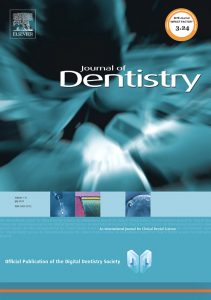Publications

Factors affecting subjective and objective masticatory function in older adults: Importance of an integrated approach
Authors: Hee-Eun Kim 1, Haneul Lee 2
Affiliations:
- Department of Dental Hygiene, Gachon University College of Health Science, Incheon, South Korea
- Department of Physical Therapy, College of Health Science, Gachon University, Incheon, South Korea
Journal: Journal of Dentistry - August 2021, Volume 113, Article no. 103787 (DOI: 10.1016/j.jdent.2021.103787)
-
Field & Applications:
- Medical
- Orofacial muscles
- Gerontology / Ageing
- Temporomandibular disorder
- Reliability
Objectives: This study aimed to subjectively and objectively assess masticatory function and identify related factors in older adults.
Methods: From July 2017 to September 2018, we enrolled 115 healthy participants aged between 65 and 86 years. They underwent oral examination, and their stimulated salivary secretion rate and masseter muscle tone and biomechanical properties were assessed. Masticatory performance with two-colored chewing wax was objectively evaluated using the mixing ability index (MAI). Key food intake ability (KFIA) was subjectively assessed using a questionnaire.
Results: The MAI score was significantly associated with the number of remaining teeth (r = 0.524, p < 0.001) and the tone (r = -0.222, p = 0.017), elasticity (r = -0.242, p = 0.009), and dynamic stiffness (r = -0.265, p = 0.004) of the masseter muscles. In contrast, the KFIA score was only significantly associated with the number of remaining teeth (r = 0.450, p < 0.001). A weak association between the MAI and KFIA scores was observed (r = 0.304, p = 0.001).
Conclusions: A combination of objective and subjective methods should be used to accurately assess masticatory function in older adults. In addition to physical factors such as the number of remaining teeth, properties of the masticatory muscles should be evaluated to improve the masticatory function of older adults.
Clinical significance: In addition to dental problems, various maxillofacial and oral factors must be considered when establishing management strategies for the improvement of masticatory function in older adults.
Keywords: Aging Chewing, Mastication, Masticatory ability, Masticatory performance, Older adults
A combination of objective and subjective methods should be used to accurately assess masticatory function in older adults. In addition to physical factors, such as the number of remaining teeth, the properties of the masticatory muscles should be evaluated to improve the masticatory performance of older adults as they experience gradual muscle atrophy.


